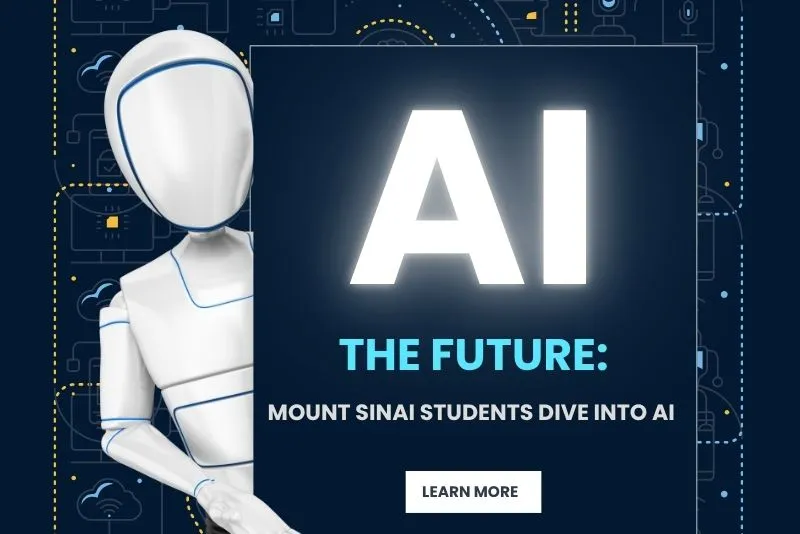
Artificial Intelligence is no longer just a concept from science fiction movies. It is now a powerful part of our daily lives. The challenge is that most students know AI exists but have no real understanding of how it works or why it matters. This lack of awareness can leave young learners unprepared for the skills they will need in the future.
If schools wait until university to introduce AI concepts, students may miss out on opportunities in technology-driven careers or fail to use AI tools responsibly. The good news is that change is already happening. Mount Sinai School in Islamabad is proud to be the first school in the city to regularly conduct TED-Ed Talks for students. These sessions make AI learning simple, fun, and interactive.
One of their recent talks, titled “What is AI?”, helped students explore how Artificial Intelligence is changing the world in ways they can understand and relate to. By making AI education engaging, schools like Mount Sinai are building confidence, boosting awareness, and preparing young minds for the future.
Why AI for Students Matters in Today’s World
AI is transforming industries such as healthcare, transportation, entertainment, and education. Introducing students to AI early builds technical knowledge, problem-solving skills, and digital literacy.
When schools bring AI into the classroom, they give students a head start in understanding the tools that will shape their futures. They also help break down complex topics into simple lessons so even young learners can understand them.
Building Future-Ready Skills
Early exposure to AI encourages critical thinking, better questioning, and creative problem-solving. Students become creators, not just consumers of technology.
Encouraging Responsible Use of Technology
AI education covers ethics, data privacy, and the impact of technology on society, helping students use these tools in ways that benefit everyone.
Boosting Confidence Through Early Exposure
When AI is introduced through interactive lessons, games, and discussions, students feel more confident approaching advanced topics later in life.
Making AI Fun and Engaging for Students
Learning about AI should be exciting. The best way to teach young learners is by using examples they already love and making lessons interactive.
At Mount Sinai, TED-Ed Talks are an excellent example of this approach. Short, inspiring sessions break down complex concepts into clear, age-appropriate ideas that spark curiosity.
Using TED-Ed Talks for Inspiration
TED-Ed Talks present AI concepts in ways that make students want to learn more, creating a sense of wonder about the possibilities of technology.
Game-Based Learning
Games like coding puzzles and AI challenges help students apply knowledge in real time, making learning both memorable and enjoyable.
Storytelling and Real-Life Examples
Linking AI to familiar things like voice assistants, animated movies, or sports analytics helps students see its relevance in daily life.
Examples of fun AI activities for students:
- Building a simple chatbot
- Creating AI-generated art or music
- Debating the ethics of AI in society
How Schools Can Introduce AI Effectively
Schools play a central role in making AI accessible. The focus should be on sparking interest and showing real-world applications before diving into complex coding.
Mount Sinai’s weekly TED-Ed Talks are a model for this. They bring in real examples, encourage student questions, and make every session interactive.
Start with the Basics
Begin with AI examples students already encounter in daily life before moving on to technical concepts.
Hands-On Learning Opportunities
Practical sessions where students use AI tools make lessons more impactful than lectures alone.
Teacher Training and Resources
Equipping teachers with engaging lesson plans ensures the content is accurate, relevant, and easy to understand.
Benefits of Early AI Education for Students
Starting AI education early is about more than memorizing facts. It’s about preparing students with skills they can use in any career path.
At Mount Sinai, students learn AI in ways that encourage creativity, teamwork, and innovation skills that will remain valuable for life.
Improved Problem-Solving Skills
AI lessons encourage students to explore challenges from multiple perspectives.
Greater Career Opportunities
From AI engineers to digital creators, early exposure opens doors to future industries.
Increased Collaboration and Communication
AI projects often involve group work, teaching students how to share ideas clearly and work as a team.
Key benefits of early AI learning:
- Develops critical thinking
- Encourages creativity
- Strengthens digital literacy
The Future of AI for Students
AI will continue to evolve, becoming an even bigger part of our lives. Students who understand it will have a huge advantage in the global job market.
Schools like Mount Sinai are showing that AI education can start early and still be fun, accessible, and inspiring.
Bridging the Skills Gap
Early AI education ensures students are prepared for industries where automation and intelligent systems are standard.
Inspiring the Next Generation of Innovators
Today’s curious learners could be the innovators who create tomorrow’s AI breakthroughs.
Keeping Pace with Global Trends
Countries and communities that prioritize AI education today will lead technological progress in the future.
Conclusion
Artificial Intelligence is no longer optional it’s essential knowledge for the next generation. AI for Students means preparing young people to think critically, act responsibly, and create boldly in a world powered by innovation.
Mount Sinai’s commitment to regular TED-Ed Talks on AI shows that introducing these concepts early is both possible and powerful. If you are an educator, parent, or school leader, now is the time to make AI part of your students’ learning journey. Start today and give them the tools to lead tomorrow.

